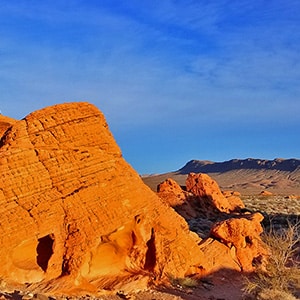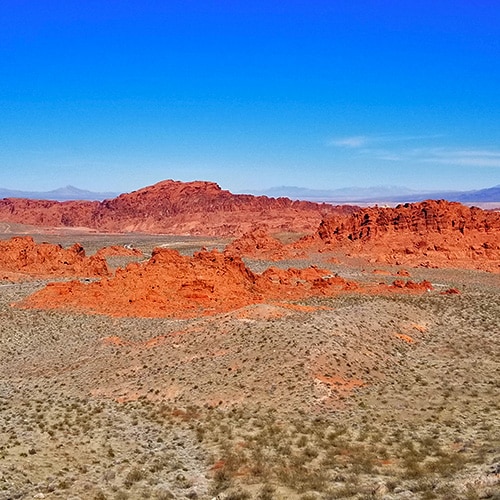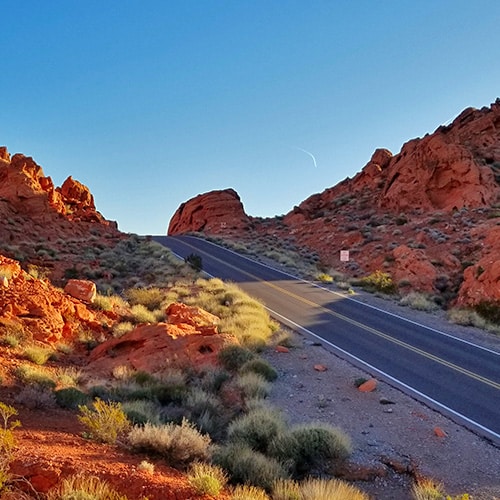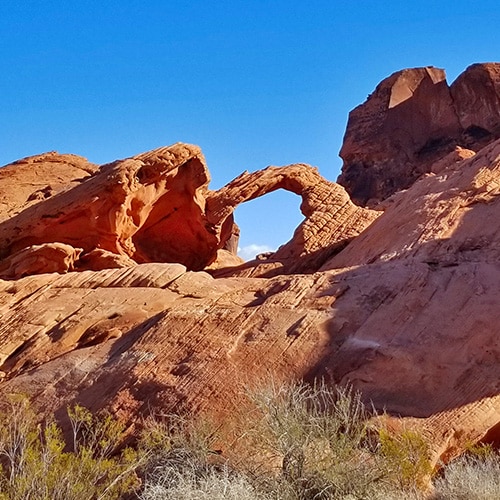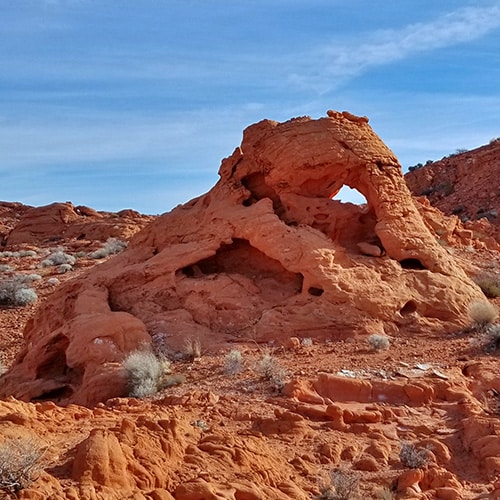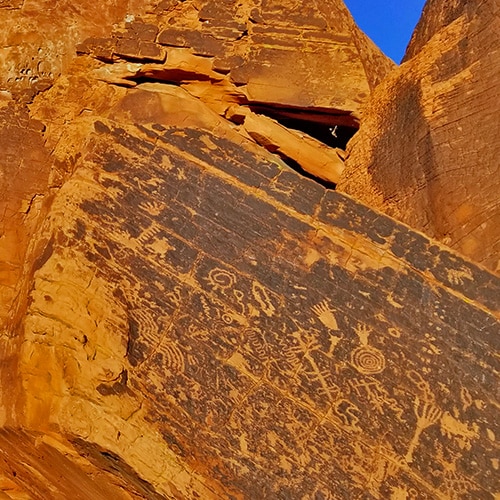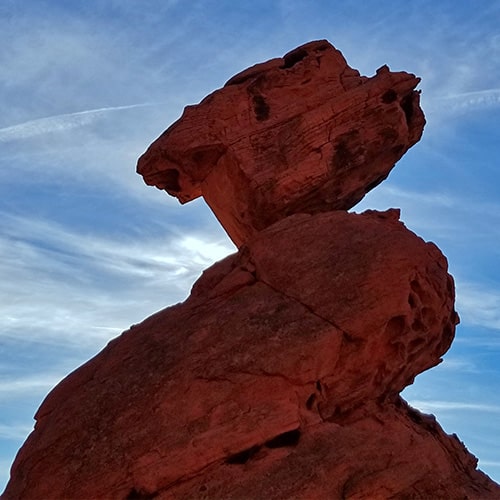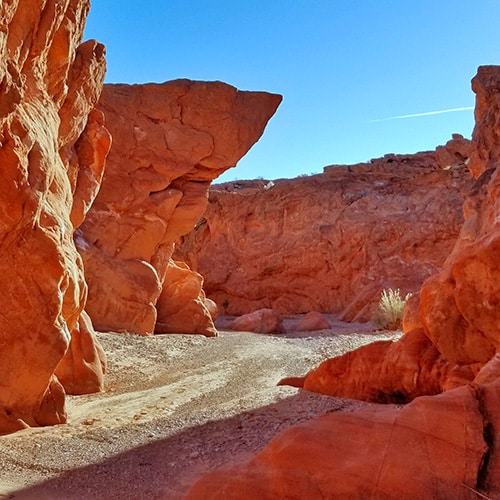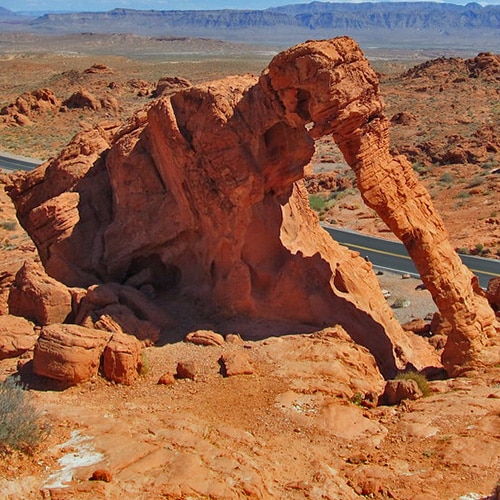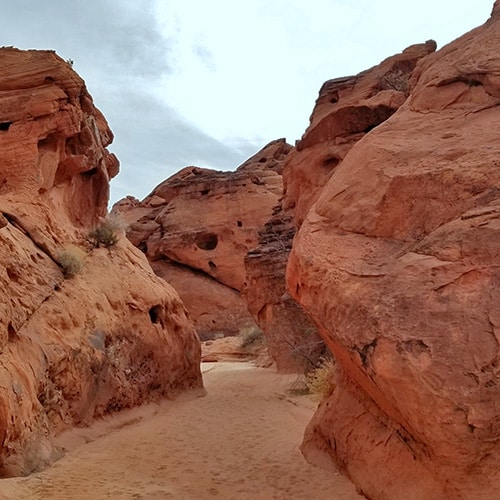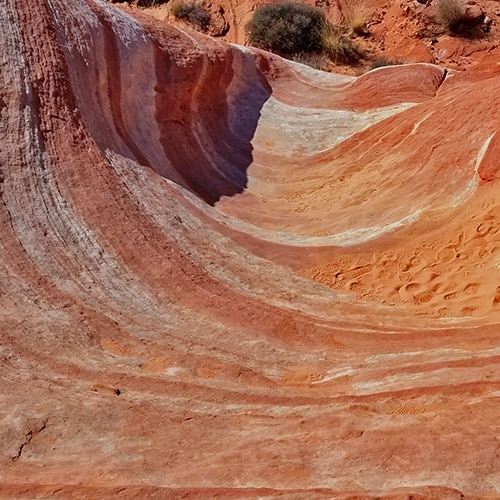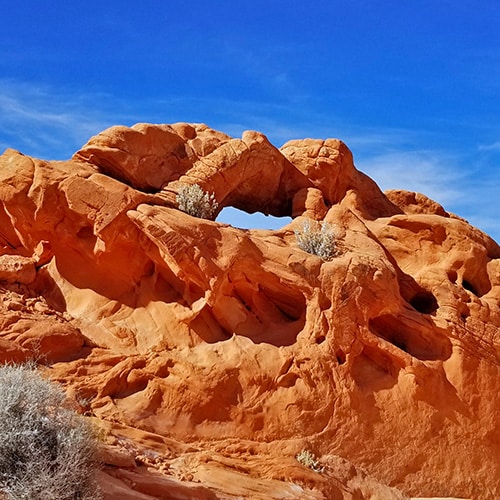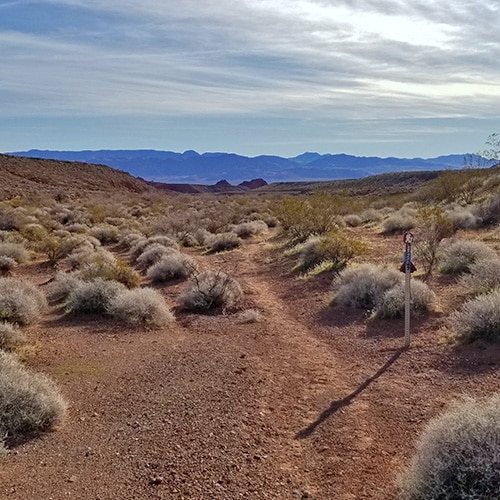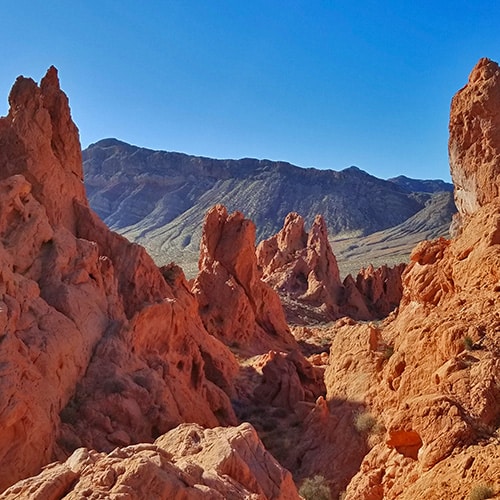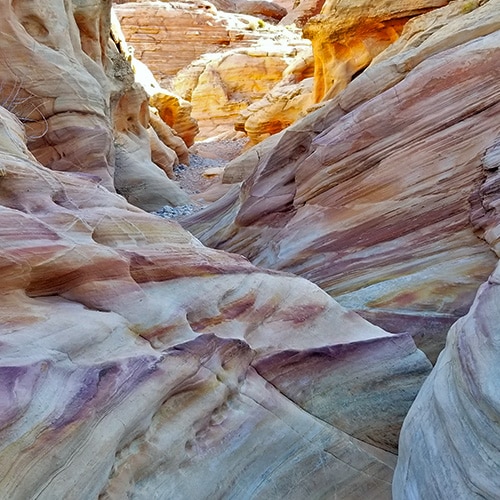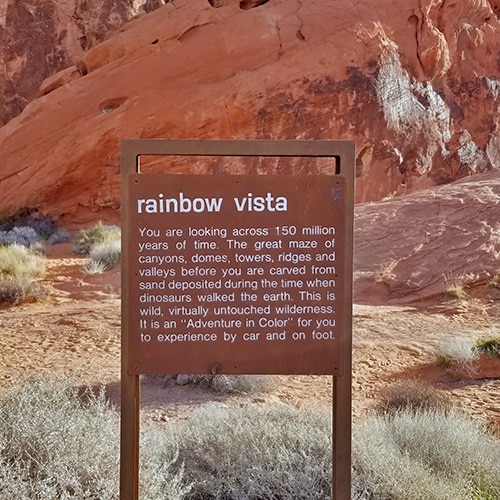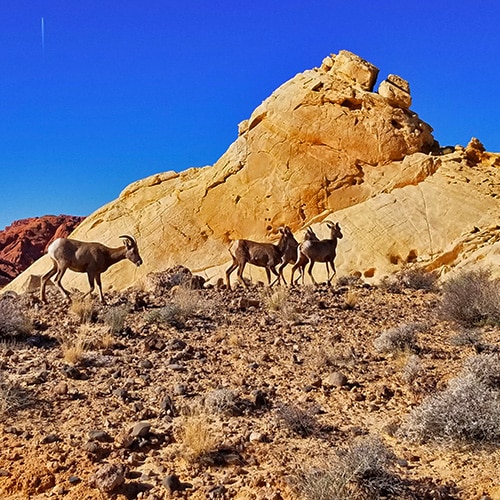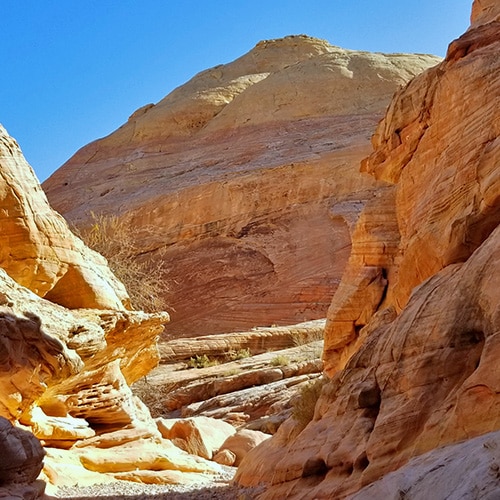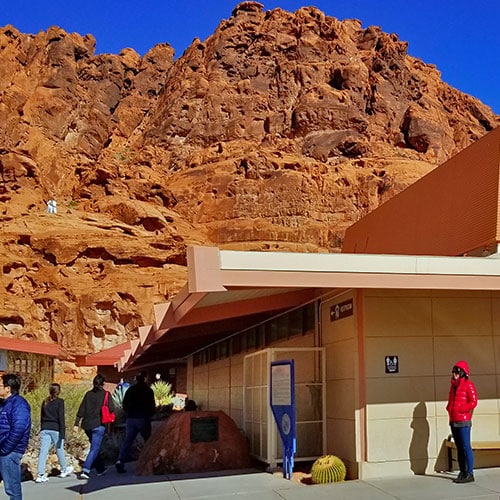Valley of Fire State Park, Nevada | Wilderness Windows Overview
(Click Through to Individual Trails and Wilderness Routes Below)
(Mileage Below is Round Trip. Altitude and Mileage are Approximate)
Valley of Fire State Park, Nevada Scenic Drive Tour Video
Scenic Drives Tour Video Will Go Here
Valley of Fire State Park, Nevada Overview
Valley of Fire State Park is about an hour’s drive Northeast from the Las Vegas Strip, and well worth the trip. Named for the fiery red rock formations that artistically blend with white rock in thousands of unique and beautiful designs, the park offers an amazing setting for photographers, videographers and painters. Most of the trailheads and points of interest are accessible via paved roads.
Valley of Fire State Park, Nevada Driving Directions and Entrance Fee
The directions from the Las Vegas Strip are pretty simple: Take Interstate 15 North from where it intersects Interstate 95 near the Fremont Street Experience area. In about 30-35 miles take a right at the well marked Valley of Fire Road exit and continue for another 11 miles to the West entrance of Valley of Fire State Park. At the time of writing this article the entrance fee was $10 per vehicle and very early or late there is no one minding the gate so you need to place exact change into an envelop and hang the stub on your rear view mirror. The park is open from sunrise to sunset.
Valley of Fire State Park, Nevada History and Size
The oldest state park in Nevada, Valley of Fire State Park was dedicated on Easter Sunday, 1934, then officially designated on March 26, 2935 as Boulder Dam-Valley of Fire State Park. The park is recognized nationally for its outstanding scenic, geologic and archeological features and sits on 8,768 acres, similar in size to Red Rock Park on the West side of Las Vegas.
Valley of Fire State Park, Nevada Geological History
Geologically, Valley of Fire Park was once an ancient shallow sea. There are fossils composed of algae, trilobites, crinoids, corals and brachiopods located in the oldest (gray) rocks between 250 and 550 million years old dating back to the Paleozoic Era. The red rocks, ancient sand dunes, are younger, between 250 and 66 million years old dating to the Mesozoic Era, creating elaborate and beautiful formations.
Araucarion Pine logs from an ancient forest (related to the modern Monkey Puzzle Tree found in locations south of the equator such as South America and Australia) were once washed into the area, then buried thousands of feet beneath the sand where water carrying minerals in solution worked its way into the microscopic air spaces in the woody tissues, slowly turning the logs to stone.
Valley of Fire State Park, Nevada Archaeological History
In terms of archaeology, there are abundant petroglyphs etched into the rock faces about 4,000 years ago by ancient Native Americans. What these drawings mean is a mystery. Use your imagination and try to place yourself in the life of the ancient artist.
Valley of Fire State Park, Nevada Animal Life
The star of the animal inhabitants is the Big Horn Sheep. There is a small flock that can often be seen at dawn and sunset near the West entrance of the park around the Beehives formations. Cougars, Coyotes, Kit Foxes and other inhabitants are far more shy and rarely seen by park visitors.
Valley of Fire State Park, Nevada Systematic Exploration
The entire Valley of Fire State Park can be initially explored in 5-6 days. However, a deeper exploration, well worth the effort, could take weeks. Valley of Fire State Park is a good preliminary adventure spot before tackling its huge neighbors immediately to the East and South, Lake Mead National Recreation Area and the Muddy Mountain Wilderness Area.
Adventures in Process
Scenic Tour Video
Additional Projected Adventures
Valley of Fire Grand Circuit
South of Old Arrowhead Trail to Muddy Mountains
